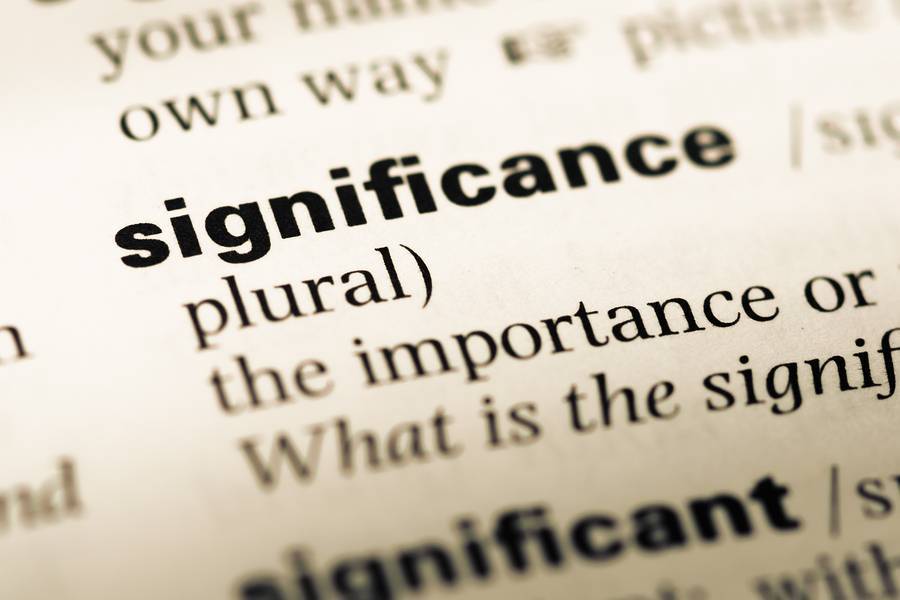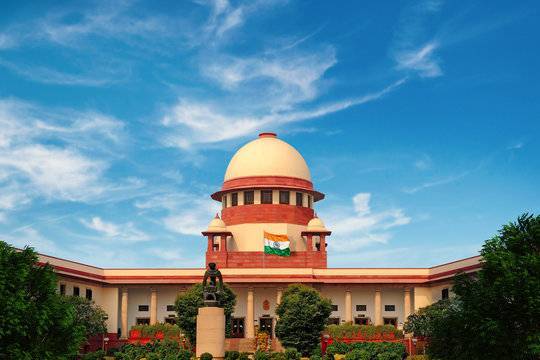
GAG LAWYERS -
GROVER & GROVER ADVOCATES

GAG LAWYERS -
GROVER & GROVER ADVOCATES

Civil Lawyer, Civil law is the body of laws in India that govern disputes among people and firms. It features a wide range of legal subjects, consisting of contracts, torts, property rights, circle of relatives regulation, and greater. Civil law is based on a hard and fast of guidelines and regulations that are designed to guard the rights of citizens. The primary provisions under civil regulation in India encompass contract laws, tort legal guidelines, assets legal guidelines, family legal guidelines, succession legal guidelines, inheritance laws, and consumer safety legal guidelines. These provide citizens with criminal remedies for disputes springing up out of contractual agreements or wrongful acts committed through another individual or organisation.
Ownership of assets, circle of relatives relationships, inheritance, and defective merchandise sold to consumers. The law governing contracts is a primary place where civil regulation comes into play. Civil Lawyer In India, civil settlement law is primarily based at the “Law of Contracts”. It presents safety to individuals and companies engaged in transactions with one another. Any settlement made between or greater parties may be enforced as a valid contract by way of the courts if both parties have consented to be certain with the aid of it.
Service CAT Matters Lawyer_Grover & Grover Advocates
Contracts are formed while one individual concurs with another celebration (or parties) to offer or acquire something from that man or woman in alternate for an agreed-upon rate. Contracts are the basis for all business, social, and private relationships, but they can also be between two or more events in government management. A contract is an agreement that two or greater events have with every different to do something particular in alternate for a certain price. There are various varieties of contracts, inclusive of guarantees, treaties, and loans.
A Contracts are agreements between two or more parties. A contract is formed whilst one celebration consents with any other to offer or acquire some thing in alternate for a sure fee. Contracts can be between two or extra events in authorities administration and business, social, and private relationships.
The Indian Penal Code of 1860, that’s the codification of crook law and process within the us of a, has its origins in British regulation. It changed into enacted to update a chaotic machine of local legal guidelines based totally on previous British statutes and colonial ordinances. However, according to the Criminal Procedure Code (CrPC), crook law is solely the domain of the kingdom governmentn British regulation. It turned into enacted to replace a chaotic system of neighborhood laws based totally on previous British statutes and colonial ordinances. However, according to the Criminal Procedure Code (CrPC), criminal law is solely the area of the nation authorities. Indian courts have jurisdiction over great crimes as well as many civil matters which have been classified as crook offences by statute.

Civil regulation is a frame of laws designed to guard the rights of people, companies, and other entities, as well as provide remedies for violations of these rights. It is a gadget of law this is primarily based on a complete set of policies for resolving disputes among people or entities. Civil law is vital to society because it affords a legal framework for resolving disputes between parties and shielding man or woman rights.
It is likewise critical for society as it allows to ensure justice and fairness and prevents chaos and anarchy. Civil law is crucial for shielding man or woman rights and resolving disputes in a fair and reasonable manner. It guarantees that everybody is dealt with fairly, no matter their reputation or historical past.
Civil regulation also offers a shape for containing humans responsible for their actions, that’s essential for keeping order in society. Finally, civil regulation is an critical tool for selling economic development and shielding organizations. By providing a felony structure for resolving disputes and shielding rights, civil law helps to create an environment this is conducive to funding and monetary growth.
It ensures that all residents are dealt with similarly and pretty, irrespective of their social or monetary repute. The motive and importance of civil regulation are to offer a framework for resolving disputes amongst individuals or companies in a honest and orderly way. In India, civil laws are based totally on numerous sources including the Constitution, statutes, judicial choices, custom, usage, etc.
Which aim to defend the rights of residents in addition to sell justice in society. Civil regulation plays a important role in keeping order in society through supplying remedies for wrongs devoted against individuals or companies. Civil regulation plays a vital function in keeping order in society via providing remedies for wrongs devoted in opposition to people or organizations.

Civil law in India is ruled through the Civil Procedure Code (CPC), which is the number one legislation that offers with civil subjects. The CPC defines numerous sorts of civil cases, such as agreement disputes, tort claims, belongings disputes, and own family matters. It additionally outlines the approaches for submitting a fit and a way to proceed with it until a judgement is passed. This article will speak the unique styles of civil cases in India and their provisions beneath the CPC.
Under the CPC, an agreement is a promise or a settlement made between two or more events. An agreement can be written (which includes a marriage agreement) or verbal. A verbal settlement is unenforceable as it does not have any legal backing. The predominant responsibilities underwritten and oral contracts are their validity, content, performance of the duty, and enforcement of rights.
Suppose one party breaches the terms of the agreement without notice from another party. In that case, that party has committed an anticipatory breach of contract and must pay damages to the other party for any loss incurred in connection with that breach (such as any loss of profits).
A contract can be written (such as a marriage contract) or verbal. A verbal contract is unenforceable because it does not have any legal backing. The major obligations underwritten and oral contracts are their validity, content, performance of the obligation, and enforcement of rights.
Suppose one party breaches the terms of the agreement without notice from another party. In that case, that party has committed an anticipatory breach of contract and must pay damages to the other party for any loss incurred in connection with that breach. Civil law covers a wide range of matters, including contracts, torts, property, family law, and probate. The following is a brief overview of some of the more common types of civil law matters and their provisions in the Civil Procedure Code (CPC).
1) Contract Law: Contracts are legally binding agreements between two or more parties. They typically involve the exchange of goods, services, or money. The provisions in the CPC dealing with contract law include rules on the formation of contracts, performance of contracts, remedies for breach of contract, and termination of contracts.
2) Torts: Torts are civil wrongs, such as negligence or intentional harm, that result in injury or harm to another person. The CPC deals with torts by providing rules on liability, damages, and defences.
3) Property Law: Property law deals with the ownership, possession, and transfer of real and personal property. The CPC provides rules on the transfer of title to property, trespass, nuisance, and the rights of landlords and tenants.
4) Family Law: Family law deals with issues such as marriage, divorce, child custody, adoption, and spousal support. The CPC provides rules on marriage, divorce, child custody, and other family matters.
5) Probate: Probate is the process of settling a deceased person’s estate. The CPC provides rules on the administration of wills, intestacy, and the distribution of a decedent’s estate.

Civil regulation in India is primarily based on the standards of justice, equity, and excellent conscience. It gives a number remedies for those who’ve suffered a wrong or harm due to the wrongful act or omission of some other individual. This article will discuss the various forms of treatments to be had under Indian civil law, along with damages, injunctions, unique performance, and restitution. It will also have a look at how these treatments are carried out in unique contexts and what their outcomes are.
An movement or in shape for damages is an utility by using the individual harmed or claiming to be harmed with the aid of a wrongful act for the award of cash damages in admire of that act. The idea in the back of this treatment is if someone’s rights are infringed upon and they are not safely compensated, they can achieve damages from the birthday celebration causing the incorrect. In India, there may be no restrict as to how much in damages may be provided as lengthy because it does now not exceed ten thousand rupees.
1) Injunctions: Injunctions are felony orders issued by way of the courtroom to restrain a person from doing a selected act or to require someone to do a selected act. The sorts of injunctions are everlasting injunction, obligatory injunction, prohibitory injunction, and interim injunction.
2) Specific Performance: Specific performance is a sort of remedy wherein the court docket directs the defendant to fulfil a contractual duty as certain within the agreement.
3) Damages: Damages are a civil treatment that lets in the court to award financial repayment to the aggrieved party to make up for any losses caused by the defendant.
4) Rescission: Rescission is a remedy that permits a celebration to terminate a settlement and return to their position prior to entering into the contract.
5) Reformation: Reformation is a treatment that lets in a court to regulate an present settlement to reflect the parties’ true intentions.
6) Restitution: Restitution is a treatment that calls for a party who has wrongfully acquired a benefit from another to return that benefit to the other individual.
7) Declaratory Judgement: A declaratory judgement is a treatment that allows the court to determine the felony rights and obligations of the events in a dispute.
8) Equitable Relief: Equitable remedy is a treatment that permits the court docket to reserve a celebration to take certain action or refrain from taking positive movement on the way to prevent an injustice.
An action or fit for damages is an software by way of the character harmed or claiming to be harmed by way of a wrongful act for the award of money damages in respect of that act. The idea behind this remedy is that if someone’s rights are infringed upon and they’re no longer effectively compensated, they could gain damages from the party inflicting the wrong. In India, there is no limit as to how lots in damages can be presented as lengthy as it does now not exceed 10000 rupees.

Civil Lawyer, Civil law topics in India are regulated by using the Indian Civil Procedure Code (CPC) and the Indian Evidence Act. Civil attorneys play an essential position in ensuring that civil instances are heard. They are answerable for studying and information the relevant laws, policies, and legal ideas that observe to every case.
Civil lawyers analyse the records of the case, advise their clients on the regulation, and prepare criminal files. Civil attorneys also constitute their clients in courtroom, present proof, and argue their cases. A civil lawyer also handles negotiations, settlements, and appeals. Additionally, they frequently offer suggest to their clients on the first-rate route of motion and help them recognize the criminal implications in their decisions.
They constitute their clients in court docket complaints, prepare felony files, suggest on criminal matters, and offer guidance on the way to clear up disputes.
1) Civil lawyers also help their customers understand the complicated prison system and make sure that their rights are covered at some point of the method. Lawyers additionally paintings with other professionals including judges, mediators, and arbitrators to ensure that civil cases are treated efficiently and successfully.
2) Most civil law practitioners are members of the Indian Bar Association (IBA) and/or the Advocates’ Association of India (AAI). The IBA is a voluntary bar association that regulates legal guidance and gives help for its individuals. The AAI is the statutory bar affiliation that has been granted a monopoly by means of law inside the non-public instruction of law in India.
3) The IBA changed into set up in 1875 and is governed through its with the aid of-laws, that are enacted underneath the Advocates Act 1961 of the Parliament of India. The Indian Bar Council has been granted the authority to adjust legal training and fine in personal regulation via a fixed of rules that may be amended occasionally. The Advocates Act 1961 regulates the instruction of regulation in India and defines a “working towards propose” as person who gives, undertakes, or holds himself out as an advise for praise.

Filing a civil case in India calls for various documents that are vital for the court to do not forget the case. These documents include pleadings, affidavits, and other evidence, including snap shots and written statements from witnesses.
The documents required to file a civil case rely on the sort of dispute and the jurisdiction of the court. In addition to these files, people might also need to offer evidence of identification and deal with verification that allows you to document a case. It is essential that each one files be correct and up to date so as for the court to take into account them valid.
1. A complaint or petition outlining the statistics of the case and the relaxation sought
2. A summons advising the defendant of the lawsuit and their responsibility to reply.
3. A evidence of the provider displaying that the defendant became served with the summons and grievance.
4. A certificate of exact status if the plaintiff is a corporation or a different felony entity.
5. A replica of any applicable contracts or agreements.
6. A copy of any relevant legal guidelines, rules, or ordinances.
7. Any affidavits or declarations from witnesses or experts.
8. Any relevant photographs or other proof
9. Any different files that can be required by using the courtroom

Grover Advocates and Solicitors is a criminal firm primarily based in India that specialises in civil regulation topics. They offer legal recommendation and illustration to individuals, groups, and organisations concerning civil instances. Their lawyers have enormous experience dealing with all types of civil subjects, inclusive of belongings disputes, own family regulation issues, agreement disputes, purchaser protection cases, and extra.
Grover & Grover, Advocates and Solicitors, can assist with a whole lot of civil law topics and civil cases. They can endorse their customers at the applicable laws and rules which can be applicable to the scenario and assist them apprehend the consequences of their options. They also can provide illustration in court court cases and negotiations, draught contracts and files, and offer prison advice on diverse topics.
They can also offer assistance in filing and responding to legal papers, researching and making ready criminal arguments, and carrying out legal studies. In addition, they can provide assistance with estate making plans, wills, and trusts, and assist resolve disputes thru mediation and arbitration.
The firm is dedicated to offering the highest high-quality legal offerings to their clients. They attempt to ensure that their customers are nicely informed approximately their rights and responsibilities below the regulation. The corporation also affords recommendation on how first-rate to proceed with a case in order that it could be resolved amicably or thru litigation if necessary.

Civil law topics in India are governed by way of the Indian Constitution and numerous different statutes. The Supreme Court of India and the High Courts of the united states of america are accountable for decoding those legal guidelines and deciding disputes associated with them. In this article, we are able to discuss a number of the most famous instances which have been heard within the Supreme Court and High Courts of India related to civil regulation subjects. We may even observe how those selections have formed the criminal landscape in India.
Supreme Court Cases:
1) K.S. Puttaswamy v. Union of India (2017): This case is related to the right to privacy. It changed into a landmark decision of the Supreme Court that upheld the right to privacy as a essential proper.
2) M.C. Mehta v. Union of India (1986): This case changed into related to public nuisance and environmental pollution. The courtroom laid down the concepts of “polluter will pay” and “public agree with doctrine.
3) Mohd. Ahmed Khan vs. Shah Bano Begum (1985): This case become associated with the rights of divorced Muslim girls. The court dominated that divorced Muslim ladies had been entitled to acquire alimony from their former husbands.
High Court Cases:
1) Ram Janmabhoomi vs. Babri Masjid (2010): This case is associated with the ownership of the disputed web page in Ayodhya. The High Court dominated that the website online belonged to the Hindu community and ought to be divided many of the three events: Hindus, Muslims, and Nirmohi Akhara.
2) State of Maharashtra vs. Indian Hotel & Restaurants Association (2006): This case turned into associated with the law of liquor licences. The High Court dominated that the state could not arbitrarily refuse to grant or renew liquor licences.
3) Thakur Dass Bhargava v. Union of India (1995): This case become associated with the proper to privateness. The High Court dominated that the right to privacy became a essential proper under the Constitution.